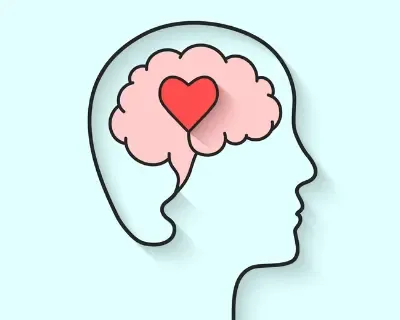Understanding the Impact of Exercise on Mental Health
In our fast-paced world, where stress and mental health issues are prevalent, seeking effective remedies has become paramount. Exercise, often hailed as a physical activity, remarkably influences mental well-being. Understanding the profound impact of exercise on mental health is crucial for adopting a holistic approach towards personal wellness.
Why Exercise Matters for Mental Health
Exercise transcends its physical benefits, extending its positive effects to mental health. When you engage in physical activities, the body releases endorphins, often referred to as "feel-good" hormones.
Exercise and Stress Reduction
Stress, a common denominator in today's hectic lifestyle, can significantly impact mental health. Regular exercise serves as a potent stress reliever by reducing the body's stress hormones like cortisol. Whether it's a brisk walk, yoga, or high-intensity workouts, each form of exercise contributes to stress reduction.
The Connection between Exercise and Anxiety
Anxiety disorders affect millions worldwide, and exercise stands as an effective coping strategy. Engaging in physical activity regulates neurotransmitters like serotonin and dopamine, which play pivotal roles in mood regulation. Consequently, individuals often experience reduced feelings of anxiety with consistent exercise.
Depression Management through Exercise
Depression, a pervasive mental health condition, sees improvement with regular exercise. Studies have shown that exercise can be as effective as medication in alleviating depressive symptoms. The increased production of endorphins, coupled with enhanced self-esteem and social interaction through group activities, aids in managing depression.
Enhanced Cognitive Function and Exercise
Regular physical activity stimulates brain function, promoting sharper focus, better memory, and improved overall cognitive abilities. This cognitive boost is particularly essential in preventing cognitive decline as one ages.
Finding the Right Exercise Routine
Tailoring an exercise routine conducive to mental health requires understanding personal preferences and limitations. Whether it's cardio, strength training, or flexibility exercises like yoga, finding an enjoyable routine enhances adherence and ensures long-term benefits.
Incorporating Exercise into Daily Life
Integrating exercise into daily life need not be daunting. Small changes like taking the stairs, going for short walks during breaks, or participating in active hobbies contribute significantly. Consistency is key, and even short bursts of physical activity can positively impact mental health.
Overcoming Barriers to Exercise
Recognizing and addressing barriers to exercise is essential. Factors like lack of time, motivation, or physical limitations can hinder regular exercise. Planning ahead, setting realistic goals, and seeking support from friends, family, or professionals can help overcome these barriers.
The Role of Professional Guidance
Consulting healthcare professionals or fitness experts can provide personalized guidance. They can tailor exercise plans considering individual needs and health conditions, ensuring safety and maximum benefits.
Conclusion
Understanding the profound relationship between exercise and mental health is pivotal in adopting a holistic approach towards well-being. Incorporating regular physical activity into daily life can significantly improve mental health by reducing stress, managing anxiety and depression, enhancing cognitive function, and promoting overall wellness. Embrace the transformative power of exercise to nurture a healthier mind and body.
In summary, the comprehensive guide to understanding exercise's impact on mental health highlights its significance in managing stress, anxiety, depression, and improving cognitive function. By integrating exercise into daily life and overcoming barriers, individuals can harness its transformative power for enhanced mental well-being.
Throughout this guide, the importance of exercise in fostering mental health has been emphasized. Regular physical activity not only benefits the body but also serves as a powerful tool in cultivating a healthier mind and overall well-being.


Comments
Post a Comment